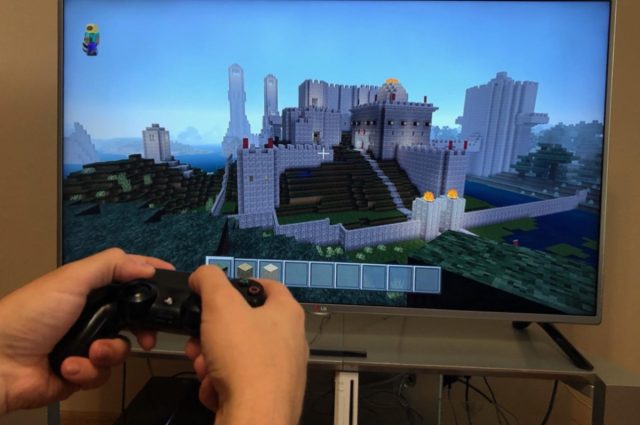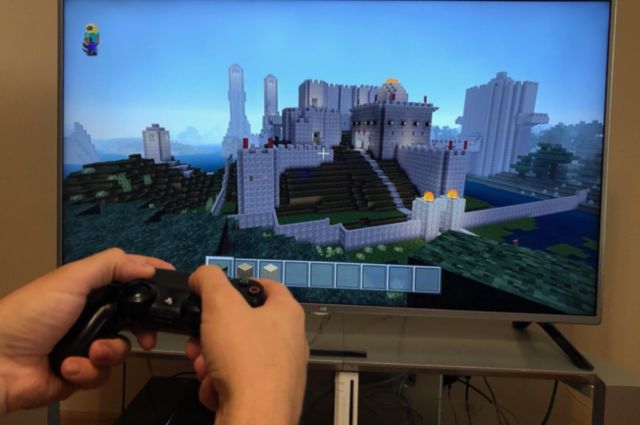Minecraft is one of the most popular computer games, having sold more than 100 million copies since its release in 2011. Claims that it boosts creativity have been circulating for several years, and now there’s a bit of scientific evidence to back up that claim, according to the results of a new study published in Creativity Research Journal.
Co-author Douglas Gentile is a psychologist at Iowa State University. His speciality is studying media influence on children, including video games, television, film, music, even advertising. That includes both positive and negative effects, from video game addiction and a possible link between media violence and aggression, to how playing certain games can improve surgeons’ skills.Ars Technica

Join Ars Technica andGet Our Best Tech StoriesDELIVERED STRAIGHT TO YOUR INBOX.SIGN ME UPWill be used in accordance with ourPrivacy Policy
“The literature looks like it’s conflicted when it truly isn’t,” said Gentile. “There’s studies showing games increase aggression, and others showing it can increase prosocial behavior. From the outside it looks like they must be good or bad, but that’s not the way the world really works. This dichotomous thinking doesn’t allow us to actually see what’s going on, because we pick one idea and then we apply it to everything.”
Gentile’s co-author and grad student, Jorge Blanco-Herrera, is a former pro gamer who wanted to explore the purported link between playing Minecraft and creativity for his master’s thesis. Minecraft is technically a sandbox video game, meaning that players aren’t provided with a specific back story, prepared quest, or much direction at all. They are free to use the game space however they like, using the tools and blocks of the game to build pretty much anything, from a simple shack to a high-rise hotel, a basic truck, or a working TV. Someone just recreated a Bob Ross painting in Minecraft. Gentile compares it to a virtual Legoworld.
“Given what we know about how games can have powerful effects on other dimensions, it’s not an unreasonable claim; it’s just untested,” said Gentile, although there could be internal Microsoft research on the subject. Yet that claim is often cited as an argument in favor of bringing computer games into schools. “That seems reckless to me, that we’re making policy decisions in schools based on a claim that has no real scientific evidence,” he said.
 Enlarge / Study participants were split into groups, with some playing Minecraft and others playing a race car video game or watching TV.Iowa State University News Service
Enlarge / Study participants were split into groups, with some playing Minecraft and others playing a race car video game or watching TV.Iowa State University News ServiceFor their study, Gentile et al. recruited 352 volunteers and had them spend 40 minutes either playing Minecraft, playing a NASCAR race car video game, or watching a TV show (Crocodile Hunter). Some of the subjects playing Minecraft were “primed,” meaning they were instructed to play as creatively as possible. Then the subjects were asked to complete specific tasks designed to measure their creativity.
It was a challenge finding just the right metric to measure something as nebulous as “creativity.” They chose two tasks often used in such experiments. In one, participants were asked to come up with as many uses as possible for a paper clip and a knife, respectively. The second task required subjects to draw an alien creature from another world; the more said creature resembled a human, the fewer points the subject received for creativity.
The results were clearest with the alien drawing task: subjects who had played Minecraft without any priming performed the best. “So the basic idea that Minecraft can enhance creativity does seem to be right, at lease in some circumstances,” said Gentile. But he was surprised to find that subjects who played the directed version of Minecraft, where they were instructed to be creative, did not show the same effect. In fact, they proved to be the least creative among the four groups, based on the chosen task.
This might be due to added pressure or self-consciousness on the part of the subjects, or perhaps it indicates a shift in motivation; the group has several potential hypotheses. “We have no way of knowing which is correct, because we didn’t expect that effect,” said Gentile. “We thought those two conditions would be the same, or maybe even the one where we primed creativity would be the most creative. There seems to be something about choosing to do it that also matters.”
“As a scientist I’m just interested in documenting the effects that it has. Whether or not you think it’s good or bad—that’s a value judgement,” said Gentile, pointing out that the military, for instance, values the increased aggression effect of some video games, while your average parent probably would not. “The research is starting to tell a more interesting, nuanced picture. Our results are similar to other gaming research in that you get better at what you practice, but howyou practice might matter just as much.”
DOI: Creativity Research Journal, 2019. 10.1080/10400419.2019.1594524 (About DOIs).
